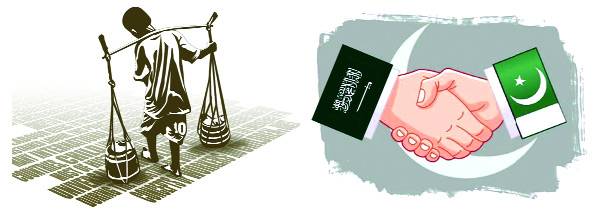
Tragedy at Mina
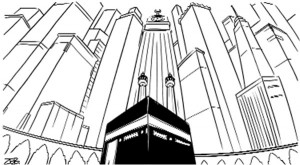
Sir,
Over 800 pilgrims have died at Mina following the stampede in the hot and humid weather, because for unknown reasons, two passages had been blocked by the Saudi security. This gruesome tragedy occurred a few days after a crane had crashed, killing over a 100 pilgrims. It is time that sanity prevails, and in pursuit of commercial gains, the security of pilgrims is not compromised. There has to be a balance between consumerism, commercialism and dignity of the Holy Mosque at Mecca, where high-rise hotels almost dwarf Islam’s holiest site, revered by over 1.5 billion Muslims all over the world.
Huge profits from religious tourism have blinded traders involved in what should have been a visit accessible to all, with minimum discrimination in the facilities offered to rich and poor. It has been almost five days now, and over 200 Pakistanis remain missing, which only points to the incompetence and sheer criminal negligence of our ambassador, his staff, members of the Hajj Directorate and hundreds others who went on state expense as members of a delegation tasked to serve pilgrims. If the Iranians have been able to tabulate their fatalities and casualties, why can the Pakistan Embassy and hundreds on temporary and permanent postings to Jeddah and Mecca not do the same.
It also lends credence to gossip on social media that the delay in announcing the dead may have been deliberate, so as not to disrupt the PM’s plans of celebrating Eid in London with his family, where a dinner was hosted by our High Commissioner with over 700 guests on the invite list. It is time that our government regulates the performance of Hajj tour operators so as to protect pilgrims. Similarly, the Saudi government and custodian of the Holy Mosque must be seen taking pre-emptive measures so that neither heavy construction paraphernalia nor poor crowd control techniques pose any risk to the lives of pilgrims.
Ali Tariq,
Lahore.
NAB or the cleaners?
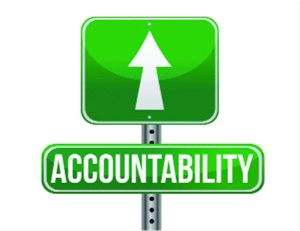
Sir,
The history of NAB serving as more of a cleaning agency for financial criminals than a deterrence to corruption by punishing the guilty, confiscating ill-gotten assets and giving long prison terms is known to all. White-collar crimes worth billions occur with the connivance of corrupt regulators and paid public office holders, which makes effective prosecution an uphill task. In the developed world, where the rule of law is more than just rhetoric, state prosecutors select ‘fool-proof cases’ only after thorough and detailed investigations. The case itself may be against a fraction of the total corruption in question, but it’s a solid ‘cannot lose’ case. Plea bargaining is an arrangement where prosecution strikes a deal with one of many criminals involved, who then turns witness against the others, giving solid evidence in return for lighter punishment; plea bargain is never used for the prime accused. Even if the prime accused agrees to return all money allegedly stolen in the select case and agrees to provide evidence against others, no deal is ever struck. The unfortunate reality is that ever since NAB was given its present form, corruption in Pakistan has multiplied. If conducted, a forensic audit of senior NAB executives and prosecutors will reveal that the vast majority of corruption in this country has benefited these individuals the most.
It was under Musharraf’s rule that corruption was institutionalized and NAB was reduced to a Laundromat of sorts for white-collar criminals. His choice of a former city bank executive, who was found involved in money laundering by a congressional committee, to serve as finance minister, and later as PM, was ultimate a mockery of good governance and signalled the death of transparency. The moment NAB arrested former Admiral Mansoorul Haq, he opted for the abused plea bargain, returned a small portion of the money stolen, and received a clean chit for his troubles. Today, NAB has become a service provider for the ‘corrupt’ elite, be they in the guise of politicians, generals, traders or bureaucrats.
Malik Tariq,
Lahore.
Government postings
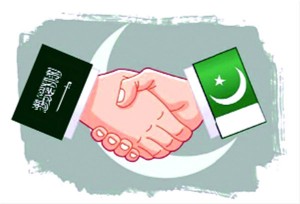
Sir,
The performing of Hajj, a religious ritual, requires a person to undertake this journey from one’s own income. If true, media reports about six journalists who went as khuddam on the last flight going to Saudi Arabia and returned on the first flight back, all paid for by the loss-making PIA, which in turn is funded by the tax payers of Pakistan, are shocking. The media must reveal the identities of said journalists, and go ahead with naming and shaming them.
You can’t expect much of the airline when Anwar Adil, a man made controversial by his holding a fake degree, was considered the best choice to be PIA Hajj Co-ordinator; he continues to hold this title because of a stay order. Why should state-owned enterprises like PIA or CAA prefer to appoint individuals who are not sufficiently qualified, hold fake degrees, have corruption cases pending against them or are under review from NAB and other investigating agencies?
There is no dearth of qualified men of integrity who hold professional qualifications from recognized universities in Pakistan, but then such persons would perhaps not serve the objectives of those who are at the helm of these corporations.
It’s no wonder that even after six days, over 60 Pakistanis remain missing after the horrific tragedy in Mina that saw almost 1100 pilgrims lose their lives. It seems those who rule Pakistan or are at the helm of affairs have nothing to fear. Let us not forget how thousands of pilgrims were fleeced between 2009 to 2012, primarily as a result of the incompetence, corruption and criminal negligence of the federal government, PIA and Hajj tour operators.
Ali Malik,
Lahore.
Innocent till proven guilty
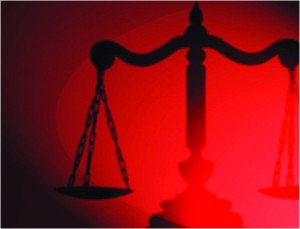
Sir,
Qasim Zia had been granted bail by a division bench, headed by Justice Mehmood Maqbool Bajwa of the Lahore High Court. His counsel, Barrister Syed Ali Zafar, argued that Qasim was wrongly arrested by NAB. No reference had been filed nor any FIR registered against him. Barrister Zafar submitted that there is no evidence whatsoever connecting Qasim with any offence and no one had complained about him stealing even a single Rupee. Barrister Zafar submitted that Qasim was a ‘national hero’ and a veteran politician of the PPP, who had been falsely implicated in the case and illegally arrested. He submitted that under the constitution, liberty was a fundamental right of every person and no one could be kept in custody in the absence of any case, and as such, Qasim should be released on bail forthwith. The Lahore High Court, after hearing NAB authorities, ordered Qasim’s release on bail upon the submission of a surety of Rs.100, 000. People with clean reputes should not be dragged through the mud needlessly. Too much damage is done to their reputations, and although they eventually are cleared of all crimes, their public image is left considerably tarnished.
Mandviwalla and Zafar,
Lahore.
Child labour
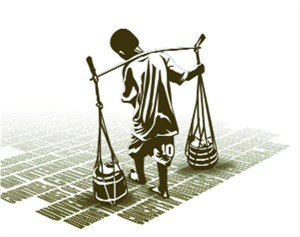
Sir,
Child labour is a serious problem in many parts of the world, especially in developing countries. Labour is defined as physical or mental work, especially that which is hard or draining. The work done by children under 15 years of age due to whatever reasons is known as ‘child labour’. The International Labour Organisation estimates that there are approximately 250 million children around the world, between the ages of 5 to 14, who are now working.
Pakistan, unfortunately, is amongst those countries in which child labour is at its peak. Children are being used to perform work that is beyond their capacity, which should be considered an act of brutality. Child labour is a crime, and in Pakistan it must be penalised and should be condemned. That being said, child labour continues unabated. Several NGOs are working for the rehabilitation of such children, but still the groups behind these activities remain more powerful and influential than the apparatus working to eradicate this plague.
What could be more inhumane than the fact that children, who are the future of the state, are being physically, emotionally and psychologically destroyed. We can see cases of child labour all around us, and we can see that children who should have books in their hands, instead carry around dirty plates and tools.
According to a survey, approximately 45% of children in the country have been exposed to child labour one way or another. The main cause behind the plague of child labour in Pakistan is the ever-increasing unemployment, which has dragged many families below the poverty line.
There is a strict need to stop child Labour in this country. Awareness must be raised and the attention of parents ought to be diverted to the education of their children. Child labour laws should be put into strict practice. In addition, the education system of the country must be reshaped and restructured according to national development goals. Orphans and other deserving children must be helped financially on a permanent basis. The political, economical and social systems of the country need to be reshaped to counter the problem of child labour in. If we succeed in this regard, our country can easily be rid of this problem i.e. child labour. The agreement that was recently approved by Pakistan, Norway and the ILO, to eradicate child labour, must be given importance, and I hope that our rulers put this agreement into practice using all the means at their disposal.
Barira Mehmood,
Rawalpindi.
Middle East realignment
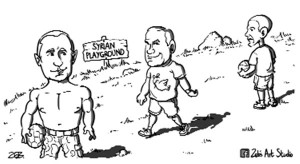
Sir,
Israeli Prime Minister Benjamin Netanyahu and Russian President Vladimir Putin agreed to set up a joint team of both countries, as Moscow ramps up its military support for Syrian President Bashar Al Assad, who is losing ground to militants in the country’s bloody civil war. Israel has set up a joint mechanism with the Russian military to coordinate their operations in Syria and avoid any accidental confrontations between the two. Netanyahu said the meetings in Moscow were aimed at preventing “misunderstandings” in Syria between the Russian and Israeli militaries. “We established a mechanism to prevent those misunderstandings,” said Netanyahu. Each of the militaries’ deputy chiefs will hold their first meeting soon and will discuss the coordination of aerial, naval and electromagnetic operations around Syria. Israel in the past has occasionally conducted airstrikes in Syria to foil suspected handovers of Russian or Iranian-supplied arms to Assad’s guerrilla allies in Lebanon. The new talks could prevent a showdown between Israel and Russia in the region. This meeting between the two leaders is of potentially great importance and may change the geo-political realignment of the region. This meeting was attended by the head of the IDF, the chief of military intelligence, and their Russian counterparts, which clearly illustrates its importance.
The two countries have historically been on opposite sides of the Middle East divide, with the former Soviet Union being the principal supplier of military equipment and training for the Egyptian and Syrian armies for decades, and Israel was always the main ally of the United States in the region. However, in the complex situation, which has evolved because of Syria, both Jerusalem and Moscow have defined areas where cooperation can be mutually beneficial. Israel wants to act swiftly to safeguard its own interests, which are more important than simply pleasing the US government. What’s happening in the region is part of a renewal of the Cold War. Israel does not want to be engaged in a proxy-war between the US and Russia, such as seen in Korea, Vietnam, and Afghanistan. The most obvious reason that concerns Israel is its air force’s freedom of action over Syria in curbing arms shipments to Hezbollah in Lebanon and maintaining air surveillance. The Russians are amassing a substantial air arm at a base on the Syrian coast and have begun installing ground-to-air missiles, which could pose a formidable threat to Israeli aircrafts if there is no coordination. Moreover, relations between Israel and Russia were not always bad. The Soviet Union was one of the first countries to officially recognize Israel in 1948. There are various reasons for the recently improved ties between Russia and Israel, but key among them is the fact that Israel has become ‘increasingly Russian’ in the past 20 years. Putin is deeply concerned with the wellbeing of Russian nationals wherever they reside, up to and including invading other countries to protect their interests, and 15 per cent of Israeli immigrants are from the former Soviet Union.
Russians can also benefit from good relations with the Israelis. Israel has quality intelligence on everything that is taking place in Syria, and as time goes by, the Russians might need Israel’s assistance in confronting the complexities of the fighting there. Israeli security sources say they could be in a position to inform the Russians about plans by Syrian rebels to hit Russian military targets or provide information about persons they might be seeking. Financially, Russia is struggling with low oil prices and Western sanctions, and it’s keenly looking for new markets for its armaments. Israel is a generous customer with a large defence budget. Putin desperately wants Russia to be a world power again, to be consequential and to be at the centre of major global decisions. Russians have good relations with the Shia camp led by Iran, and after having cordial relations with Israelis as well, they will be in a position to significantly influence the whole region.
The Russians and the Israelis agreed to establish a hotline between their militaries in order to minimise the chance of hostile encounters. Efforts are also being made to step up Russian-Israeli trade relations. Russia and Israel have been in discussions about increasing Israeli agricultural exports to Russia as well as other new economic projects. Russia and Israel launched discussions on the prospects of creating a free trade zone known as the Customs Union, which would bring together Belarus, Kazakhstan, Russia and Israel. It’s clearly visible now that a new major realignment is emerging in the Middle East. But how it will work and what repercussions it has on the region has yet to be seen. But one thing is certain that the shifts in the Mideast equations mark perhaps some of the most dramatic strategic changes in the region since the 1979 revolution.
Manish Rai,
Tehran.

